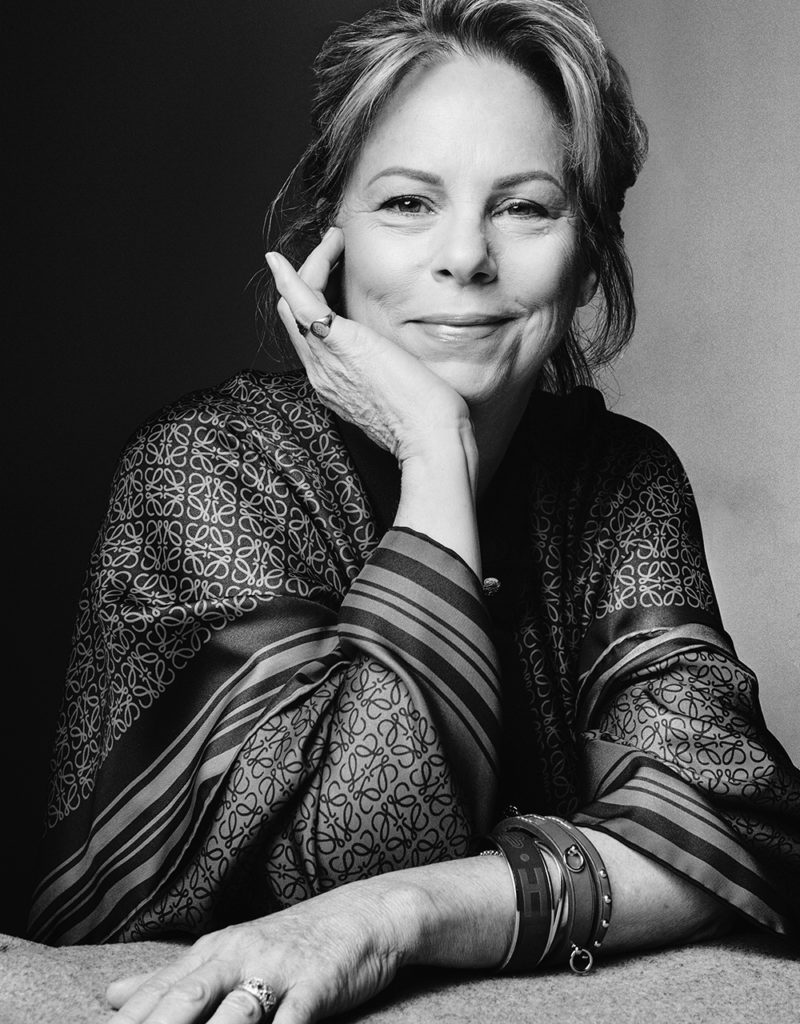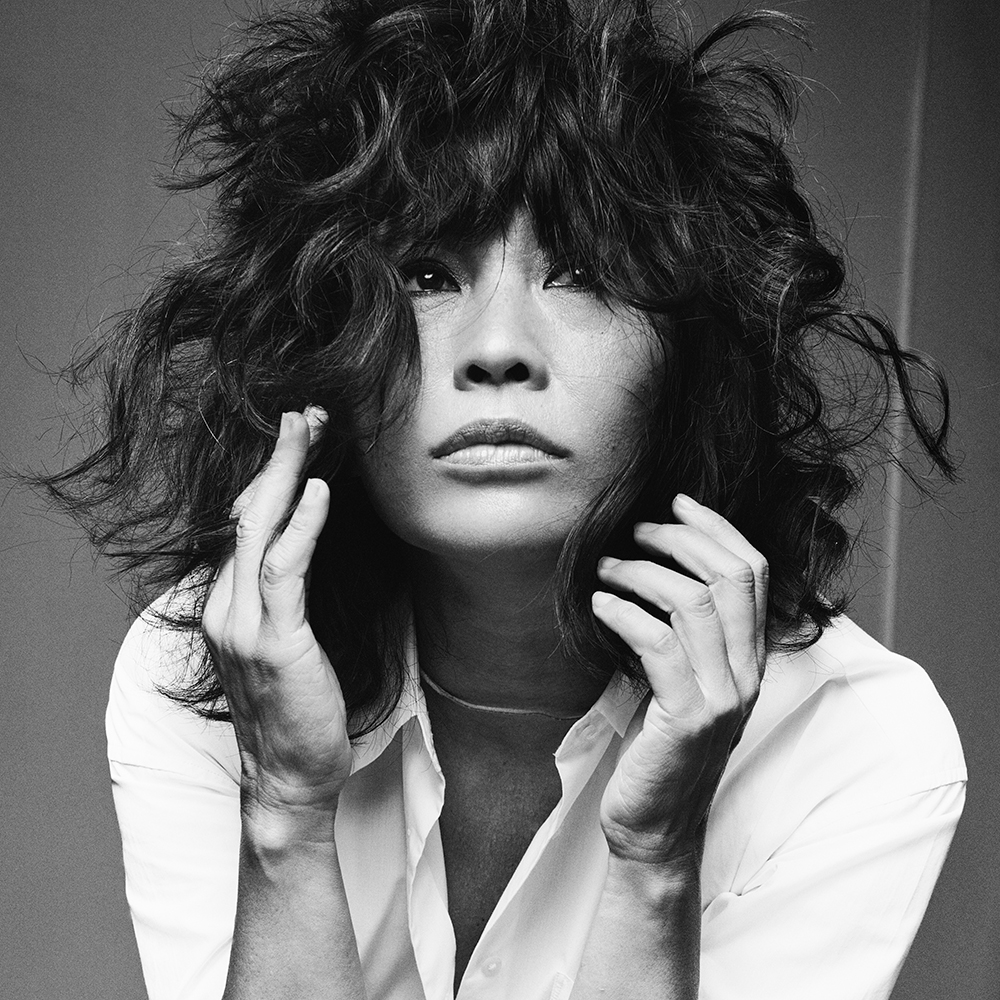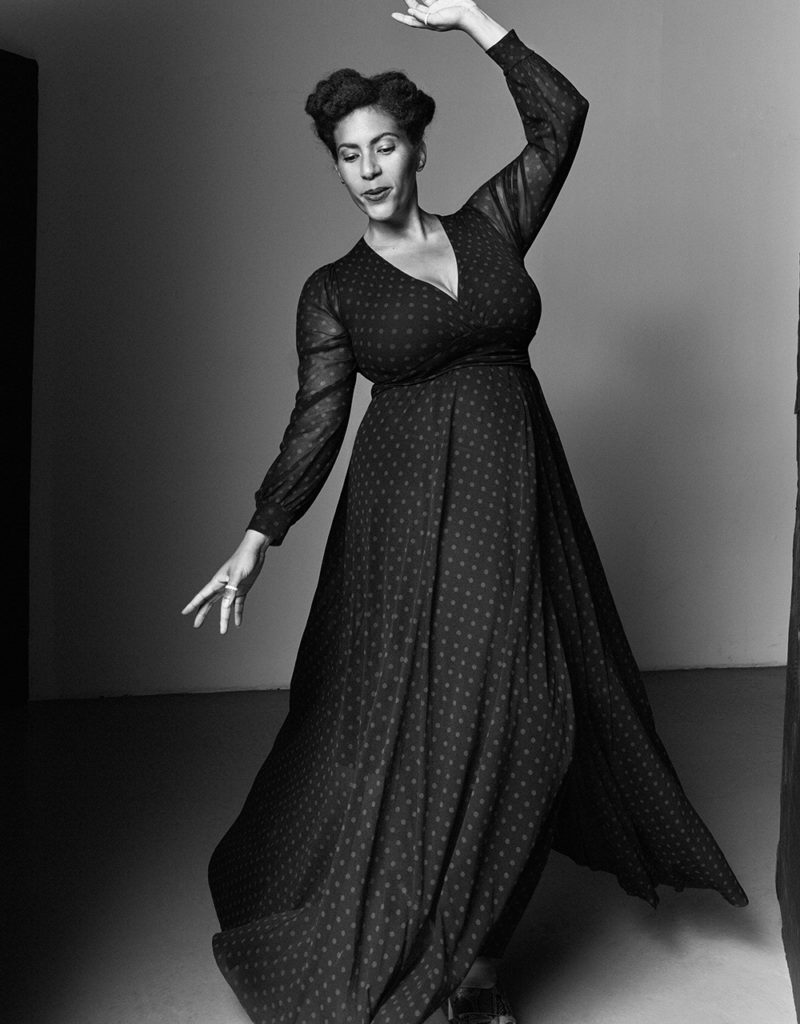For some, watching a movie provides a temporary escape from their ongoing to-do list or overflowing inbox. For others, it’s the perfect way to get whisked off to another time period, remote location, or even an alternate universe. No matter what kind of high-stakes choices or emotional struggles are depicted onscreen, for these three women, the most thrilling decisions are the ones made behind the camera. TIFF executive director and chief operating officer, Michele Maheux, filmmaker Sook-Yin Lee, and Black Women Film! founder Ella Cooper are all passionate, forward-thinking members of the Canadian film community who are concerned with the ways in which films illuminate different points of view and ultimately shape our culture. Not only do they represent the changing face of Canada’s film industry, they’re establishing its future.

If it weren’t for a particularly encouraging professor, Michele Maheux might not have made a lasting impact on the film industry. The outgoing executive director and chief operating officer at the Toronto International Film Festival (who announced her retirement in August, ahead of her final fest) remembers a professor at Carleton University reading her assigned review of Quebecois director Denys Arcand’s Réjeanne Padovani, and pointing Maheux to the school’s film studies department. Decades later, Maheux has helped launch initiatives that champion female filmmakers at home and abroad. She’s also proudly welcomed top-level talents like Priyanka Chopra and Jill Soloway to TIFF as ambassadors of the Share Her Journey campaign, which is a fundraising effort to create more opportunities for women behind the camera. As she helps roll out the red carpet for this year’s festival, Maheux opens up about paying it forward.
Was there a specific movie or moment that made you realize you wanted a career in film?
“It would have to be Denys Arcand’s Réjeanne Padovani . I was in journalism school at Carleton University and my French essay professor showed us the film and had us write a review. She called me into her office and suggested I speak with the film studies department—she saw something in that essay that showed my passion for film. That was it and I switched majors that week. Thank you, Denys!”
What are some of the biggest challenges you face in overseeing a film festival with the size and influence of TIFF?
“The festival is a massive labour of love—just as it requires exceptionally smart people in a variety of disciplines to make a film, it takes that same expertise, passion, and commitment to run a festival exhibiting those works. Showcasing more than 300 films to an audience of more than 600,000 requires a great deal of precise planning, collaboration, and adaptability to change, but in my time here, I’ve found that no challenges are insurmountable with our team of dedicated staff and volunteers. I’ve always believed that the key to success is to hire smart, kind, talented people who really get what it means to work here, and who want to help transform the way people see the world through film. Challenges may arise, and they do, with a project this high-profile and culturally significant, but it helps to work with one of thegreatest teams in the world.”
What kind of outreach and initiatives is TIFF working on to promote and support women in film?
“In July 2017, TIFF launched Share Her Journey, our five-year fundraising campaign to help increase participation and opportunities for women in front of and behind the camera. By the end of this year, we expect 100 women to benefit from professional development opportunities offered by this initiative, including talent scholarships, writers’ residencies and awards, producer accelerator programs, and workshops, as well as access to networking programs, industry experts, and specialized delegate resources. Share Her Journey aims to raise an ambitious target of $3 million by 2020. We are well on our way to achieving this goal, having raised $1.3 million to date, but we know there is still more work to do. TIFF has partnered with some of the most talented women working in the industry as they join the campaign as ambassadors—including Jennifer Baichwal, Priyanka Chopra, Jill Soloway, Amma Asante, and Molly McGlynn. During this year’s festival, we are looking forward to hosting new events that continue to celebrate and champion women in film.”
What is the most rewarding part of your work?
“Being the change and helping young women realize their worth and potential early on in their careers—a kind of ‘pay it forward.’ My generation didn’t have an easy time in this business, and I’ve always wanted to help pave the way for those women coming up through the industry behind me.”

No matter which title she’s held throughout her career, Sook-Yin Lee has been synonymous with nuanced storytelling. The prolific actress, podcaster, and TV and radio personality—who got her start as a MuchMusic VJ—aims to subvert cultural stereotypes or preconceived notions about the ways people navigate the world, and her latest film, Octavio is Dead!, is no exception. The movie explores themes of gender and sexual identity and stars Sarah Gadon and Rosanna Arquette. Here, the undeniably influential Canadian reflects on her creative process, assesses today’s queer cinema, and explains why she’s much more than a “woman in film.”
What pushed you to direct your first film, Year of the Carnivore, almost 20 years after becoming active in the media industry?
“As a kid, I was drawn to art-making because I was shy—art saved my life and allowed me to express myself. I started making short films and plays in high school and entered contests and won and got to make films and theatre. While at MuchMusic, I made short docs, lo-fi experimental documentaries, and sketch comedy. Working at CBC coincided with my return to short-filmmaking in my personal life. Making radio with a focus on personal storytelling helped hone my understanding of story. The first feature movie I contributed to was an omnibus film called Toronto Stories helmed by four filmmakers, each contributing a chapter. Year of the Carnivore was a natural extension of all these experiences. It was my first leap into writing and directing a full-length movie. I developed ideas for more movies and delved deeper into documentary practice while focusing on photography and experimental dance narrative.”
Your latest film is Octavio is Dead!. What was the creative process like?
“Octavio is Dead! is the second feature that I wrote and directed. Unlike the situational comedy of Year of the Carnivore, it’s an atmospheric drama—a melodrama with barely perceptible moments of dark comedy. All my movies, including my short films, have a woman at their centre, navigating a difficult world. I developed the movie for years to get the script the best it could be on the page while my producers from the Film Farm worked hard to get it financed. Much of the early writing was a solitary endeavour. It’s a wonderful space to be, lost in your imagination and solving the puzzle of what you are trying to express. Once the movie was financed and into production, we moved into high gear. I had a month of pre-production and 17 days to shoot—it was a tight turnaround. We moved fast without sacrificing quality. There was a lot of ingenuity and hard work, and a sweet-hearted feeling on set. I was blessed to work with brilliant actors including Sarah Gadon, Dimitris Kitsos, Rosanna Arquette, and Raoul Trujillo, and key creatives—cinematographer Daniel Grant, production designer Elisa Sauve, editor Ajla Odobasic, costumer Hanna Puley, and Jessica Panetta and Christina Spina, who ensured the look and feel of the movie was something very special.”
What do you think are the biggest challenges facing the queer cinema genre today?
“Queer cinema is a dynamic and exciting space. At Toronto’s Inside Out LGBT Festival, where Octavio is Dead! premiered, the audiences were smart, political, and sophisticated. They were open and enthusiastic. So many of the movies had depth and substance, which is in keeping with a more socially minded, grassroots awareness that can be lacking in the bigger festivals that are more tied to commercial and corporate concerns. That said, there are challenges facing queer cinema. As more of the audience gravitates toward the small screen, the number of moviegoers who make it out to see a movie on the big screen is decreasing. Many of the difficulties facing queer cinema are the same challenges that face auteur filmmakers. We need to tell bold stories that defy convention, that challenge and entertain with fresh perspectives, but the problem is you could make a great movie and have nowhere to show it. We need more visibility, support, and access to the gatekeepers who operate the delivery systems that screen and broadcast movies.”
How important is pushing the boundaries of gender and sex in your work?
“My movies are often love stories that deal with the difficulty of intimacy. Love, sex, and the desire for connection is a highly charged and dramatic arena. These ideas inspire me likely because of my own challenging relationship with trust and intimacy, and an ever-changing understanding of self. I do not go into a movie aiming to push boundaries, but it seems, by following my curiosity and interests, I invariably do.”
Best part about being a woman in film?
“‘Woman in film’ is a contentious term to me, as I find it a limiting label, kind of like a ‘woman in rock.’ I think they are media-made descriptions used to easily categorize a person, but in doing so, it reduces them. The best part of being a filmmaker is the rigorous mental, emotional, physical, and psychological acumen it requires to manifest an idea, ensuring that every detail within the frame serves the story. I love that challenge. It’s also exciting and meaningful to collaborate with people I’m inspired by with the aim of making a movie we’re proud of.”

For award-winning director, artist, and film programmer Ella Cooper, the power of movies is in their ability to create shifts in the culture at large. She discovered this early on in her career, while working with programs that promote aspiring directors from marginalized communities. In the years since, Cooper has remained committed to this idea. She’s gone on to become the founder of Black Women Film!, a leadership program and collective of emerging female filmmakers who identify as part of the Canadian–African diaspora. Her dedication to giving people a voice through the arts has earned her a spot on TIFF’s Canadian film jury, and the honour of being named one of the Toronto Arts Council’s 2017 Cultural Leaders. Accolades aside, Cooper says the most exciting part of her work is still seeing how it makes waves.
What inspired you to choose filmmaking as a means of inciting social change?
“I initially came to Toronto to study film and new media at Ryerson, and when I first tried entering into the industry, I felt very disempowered and uninspired. I ended up getting involved with the creation and delivery of community film programs and projects in Toronto and Vancouver—programs that put the camera back into the hands of youth and marginalized voices, and where I got to teach a lot of first-time filmmakers. It was through these initiatives that I first saw how film could incite positive social change at a grassroots level. When we give or are given the opportunity to have our voices heard and feel supported in telling our stories, there is an important shift that begins to happen, both individually and at a societal level. This in turn helps to shift the dominant narrative as creatives of colour and helps those on the margins to build both the confidence and portfolio of experience and connections to break into the industry or go at it on their own.”
“Simultaneously, as these programs were taking place, I also started to create my own work as a media artist and film director and cinematographer. I became really interested in the representation of the Black female body in Canada, and how I could create new photo–video works and add new images and perspectives to our dominant visual culture. In addition, I began creating documentary works and dance film that highlighted queer, diverse, and Black perspectives.”
What has been the most fulfilling part of founding Black Women Film! Canada?
“The most exciting thing is to see how we’ve become a catalyst. At the launch of Black Women Film!, 40 black women filmmakers and media artists came together to support each other as mentors and allies in this sector. The moment felt historical, and since then, the participants from our leadership program and Elevate series have gone on to collaborate together, work with our mentors and industry experts, create new film works, program international film festivals, win awards, and build their own initiatives around this work. We’ve brought over 70 different Black women–identified filmmakers and content creators through the doors of TIFF, CFC, NFB, and the CBC, and we are still finding that people are surprised to discover that there are so many of us. Most importantly, we’ve become a really positive community of support for one another, which is really needed in an industry that is still quite averse to change.”
How has support from TIFF helped you advocate and shed light on diverse communities?
“TIFF has been a wonderful industry champion to Black Women Film! Canada. Cameron Bailey and his amazing team have continually said yes to helping us provide more access to the festival for Black women–identified filmmakers while also inviting my own voice into the mix as a programmer and jury member. Last year, I had the honour to serve on the Canadian Features jury and was a guest programmer for their Black Star film series celebrating Black excellence in film.”
Best part about being a woman in film?
“One of the plus sides of working on the peripheries of an industry, constantly in the margins to create your work, is that you often get to be your own boss, to set your vision on a course that works best for you and choose who you work with. From a female perspective, I would also say that the best part is the growing sisterhood of women who are coming forward to support one another and welcome new faces. I’m excited by the shift it’s creating and the new content that is making waves because of it.”
Photography by Ted Belton
Styling by Stacy L. Troke
Hair & Makeup by Ronnie Tremblay at P1M
